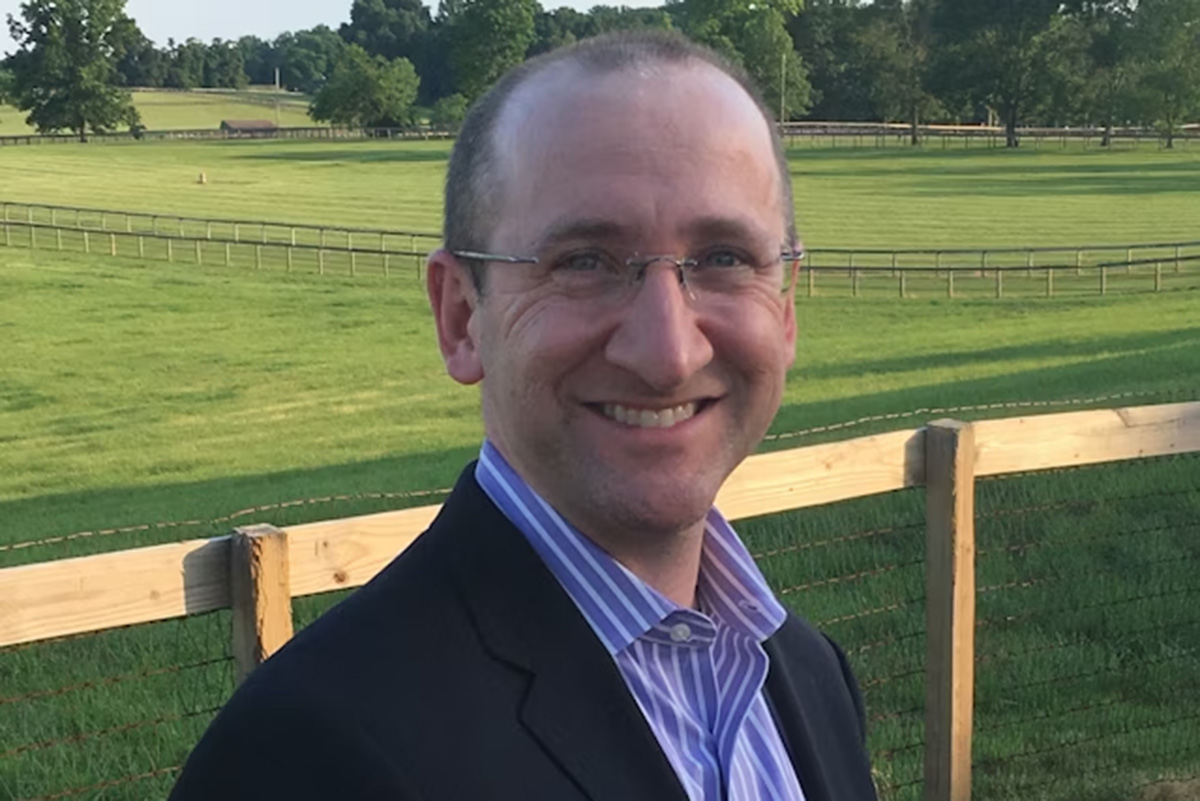As John MacDonald observed 90 police executives from the United Kingdom exchange ideas and collaborate on evidence-based methods to reform policing, he noticed an unmistakable energy. That was 2019. MacDonald, a professor of criminology and sociology, was a visiting fellow at Clare Hall, a college at the University of Cambridge. This culture, rooted in experimentation, had no analog at an American university.
“Just being around these mid-career police officials who were all speaking a common language about research and evidence, I’d never seen that before,” MacDonald says. “It was kind of eye-opening.”

The idea for the new masters program emerged after Criminology and Sociology Professor John MacDonald (above) observed 90 police executives from the United Kingdom exchange ideas and collaborate on evidence-based methods to reform policing. (Image: Courtesy John MacDonald)
It planted a seed for MacDonald: Could Penn create a degree program that applied research-backed strategies to cultivate fair and equitable policing, with an aim of strengthening relationships between law enforcement and communities?
Beginning next fall, the idea will come to fruition. The Department of Criminology, in conjunction with the College of Liberal & Professional Studies, will offer a new Master of Applied Criminology and Police Leadership (MCPL) degree. It is the first program of its kind in the United States.
This differs from a traditional criminology graduate degree. Its hybrid design will allow the targeted students—many who are senior police leaders—to continue to work full-time while taking classes, which will run on Fridays and Saturdays, plus a summer session. The first cohort will be 15 students, with an initial focus on senior officials from the Philadelphia region. Future classes could grow to 30 students from police departments along the East Coast, with two sequential cohorts totaling 60 part-time students by Academic Year 2027-28.
It is the right time for Penn to introduce something like this, says Nora Lewis, Vice Dean of Professional & Liberal Education. “We educate doctors. We educate lawyers. We educate businesspeople. Just like those other types of professionals, police should have access to a top-tier graduate education, one that can advance the culture of policing.”
The recent launch of the University’s strategic framework, In Principle and Practice, renews Penn’s commitment to working with the City of Philadelphia. “We must cultivate leaders who serve their communities and engage with the great challenges of our time,” Lewis says.
Since the pandemic and the death of George Floyd, U.S. police departments have faced a crisis of confidence, both internally, as new officer recruitment has failed to outpace retirement (though numbers from 2023 look more promising), and as the disconnect between police forces and communities has grown, MacDonald says. It has prompted a quest for more evidence-based policing, he adds.
“As academics, we publish our papers and hope they will trickle into the practice community, but that’s not how the practice communities work, generally,” MacDonald says. “This is an attempt to bridge that gap.”
As academics, we publish our papers and hope they will trickle into the practice community, but that’s not how the practice communities work, generally. This is an attempt to bridge that gap.
To shape a proposal for this new degree, MacDonald collaborated with colleagues in criminology, contacts in urban police departments, and government officials. The architect of the University of Cambridge program, former Penn professor Lawrence Sherman, has served as an advisor. A few top-tier universities in the U.S. offer certificates for police executives seeking to further their education. None is as comprehensive as Penn’s planned master’s.
Currently, the University is conducting a national search for a faculty director to lead the MCPL program, someone with policing experience and robust academic credentials. The curriculum will lean into expertise from the current Penn criminology program. MacDonald says he expects a mixture of practical classes in management and data analytics along with lessons in evidence-based policing.
The “critical mass of scholars” at Penn who have conducted research in this field have “the academic expertise to provide advanced education in the theory and techniques of evidence-based policing,” Lewis says, “as well as experience working with police departments around the country on how the research can be applied to real-life situations.”
MacDonald says that police officials in leadership positions, a decade or so into their careers, will likely fit the program best; they already have experience to build on, and after they earn the degree, have years to put into practice what they’ve learned. This is why rather than a thesis, the Penn program will require a capstone project based on “a problem in either their agency or some other agency that they have a connection to,” MacDonald says, “seeing if they can do some research around that problem and how to address it.”
It’s an opportunity, he adds, to foster collaboration and experimentation based on evidence-backed research. “What do we know from research? How can it inform better practice? That’s what can make a real difference in a field,” MacDonald adds. “I saw it in the U.K., all these people returning to their commanders, advocating for trying out something new, figuring out what works and what’s better, what’s not just more effective, but fairer.”


